AEPO-ARTIS: Croatia Making Position of Performing Artists Difficult
ZAGREB, 3 Aug, 2021 - AEPO-ARTIS, a non-profit organisation that represents over 650 performing artists, has sent a letter to the Croatian culture minister criticising Croatia for being late with the adoption of new copyright legislation and missing a deadline for the implementation of two EU directives, the Croatian Musicians Union said on Tuesday.
The organisation said that the implementation of the Copyright Directive and the Directive on online transmissions and retransmissions was being delayed because Croatia was late with the adoption of the new Copyright and Related Rights Act.
The letter, signed by AEPO-ARTIS secretary general Ioan Kaes, says that the COVID-19 pandemic has widened the gap between the growth of profit by online giants and individual artists because the latter do not participate in the fair distribution of this turnover.
The situation is particularly dramatic because in the new business circumstances the turnover of online platforms has become a dominant source of income for the music industry. For over a year and a half, performing artists have been denied their basic source of income - live performances, while at the same time the use and turnover of their recordings increased and performers could not enjoy their rights equally with others. Although their works still reach wide online audiences, artists receive small or no remuneration for them, according to the letter.
The institute of performers' inalienable right to remuneration is not incorporated into the proposal for the new Copyright and Related Rights Act, and under the proposal, record companies would be given an additional three years to adjust their business. This would allow Croatian record companies to continue their unfair and unethical practice of blackmailing performing artists and not paying them for the performances that have been used by online services for years, the letter said.
AEPO-ARTIS concluded by saying that introducing the inalienable right to remuneration, which artists would be able to exercise through their collective management organisations, is the best, if not the only, solution that guarantees that artists receive appropriate and proportionate remuneration for their work.
For more about politics in Croatia, follow TCN's dedicated page.
Ivo Pilar Social Research Institute Expanding Scientific Cooperation in Sarajevo (BiH)
July 2, 2021 - Dedication to researching and developing the field of social sciences sees the Ivo Pilar Social Research Institute expanding scientific cooperation once again after Željko Holjevac's visit to Sarajevo, in Bosnia and Herzegovina.
The Ivo Pilar Social Research Institute, active as always, continues to expand its cooperation on scientifically explain social issues (symbolically noted as 2021 marks 30 years of the Institute).
As reported on their official website, Institute headmaster dr. Željko Holjevac visited Sarajevo, the capital city of the neighboring Bosnia and Herzegovina, from June 21-23.
The main story of that visit was a signed bilateral cooperation agreement between the Ivo Pilar Social Research Institute and the Sarajevo Catholic Faculty. The agreement was signed by Holjevac and Faculty dean dr. Darko Tomašević.
Additionally, Holjevac was at the reception with Vrhbosanski's vice bishop Vinko Puljić.
„They talked about possible shared projects that would be adjusted to the tradition, culture and developing needs of Croats in Bosnia and Herzegovina“, informed Ivo pilar social research Institute.
Croatian Cultural Society Napredak (progress) also met with Holjevac. Napredak soon celebrates 120 years of work and was founded at the start of the 20th century when the famous Croatian social scientist Pilar was active in Bosnia and Herzegovina. Napredak plans various manifestations for their big anniversary, and dr. Holjevac discussed the possible cooperation in organizing an international scientific symposium regarding the identity of Croats in Bosnia and Herzegovina.
Ivo Pilar Institute working in full speed
This sort of cooperation in regards to researching the Croatian diaspora in the neighboring country where the Croatian historical role and present is significant is nothing new for the Ivo Pilar Social research Institute.
As TCN reported earlier in May, the Institute, along with scientific partners, organized a conference “Identity of Boka Kotorska Croatians“, and the three-day event gathered crucial scientific institutes in Croatia to the town of Tivat in the Bay of Croatian Saints in Montenegro.
Scientists from the Institute were also active this year as they participated at European Conference For Social Work Research (ECSWR), International Society for Ethnology and Folklore (SIEF) Conference, and also by presenting a book on Croatian Mountain Rescue Service in Gospić, or by presenting book Cultural Identity of Vukovar – Contribution to Investigating Heritage and Successors“ – to list some of the activities TCN reported on throughout 2021.
As 2021 marks the 30th year anniversary of the Ivo Pilar Institute, apart from the aforementioned actions (to which we can include nurturing relations with scientific colleagues in Slovakia or opening a new research office on Vis Island), several more goals were envisioned by the end of the year: to publish the first edition of critical translation for the book „South Slavic (Yugoslav) Question“ by Ivo Pilar from 1918, and to make and publish Pilar's Kaleidoskop of Croatian society.
With the active academic dynamic demonstrated by the Institute, there is no doubt there is enough quality and capacity to achieve these goals. It is only a matter of time in such a busy and productive schedule.
Learn more about Croatian Diaspora on our TC page.
For more about science in Croatia, follow TCN's dedicated page.
Brick Yard: Part Exhibition, Part Party, Complete Post-Lockdown Artistic Showcase
June 29, 2021 - A unique event for the Croatian art scene, Brick yard, a meeting point between an exhibition and a party, features four Croatian artists presenting their work and making a statement that not even coronavirus can stop art.
EDITOR'S NOTE: The event was moved to July 3, due to a bad weather forecast
The coronavirus pandemic and the experience of lockdown were either an inspiration for artists or those circumstances just made it easier for them to focus on their work as everything was closed and isolated. Much like almost everything else, the art and culture sector wasn't immune to the pandemic's heavy blow.
With art events and exhibitions still facing challenges, Jasmina Krajačić, Mario Romoda, Apolonija Lučić, and Zorana Unković, instead of waiting for the support by the culture ministry or for galleries to return to being fully functioning institutions, took their faith in their own hands.
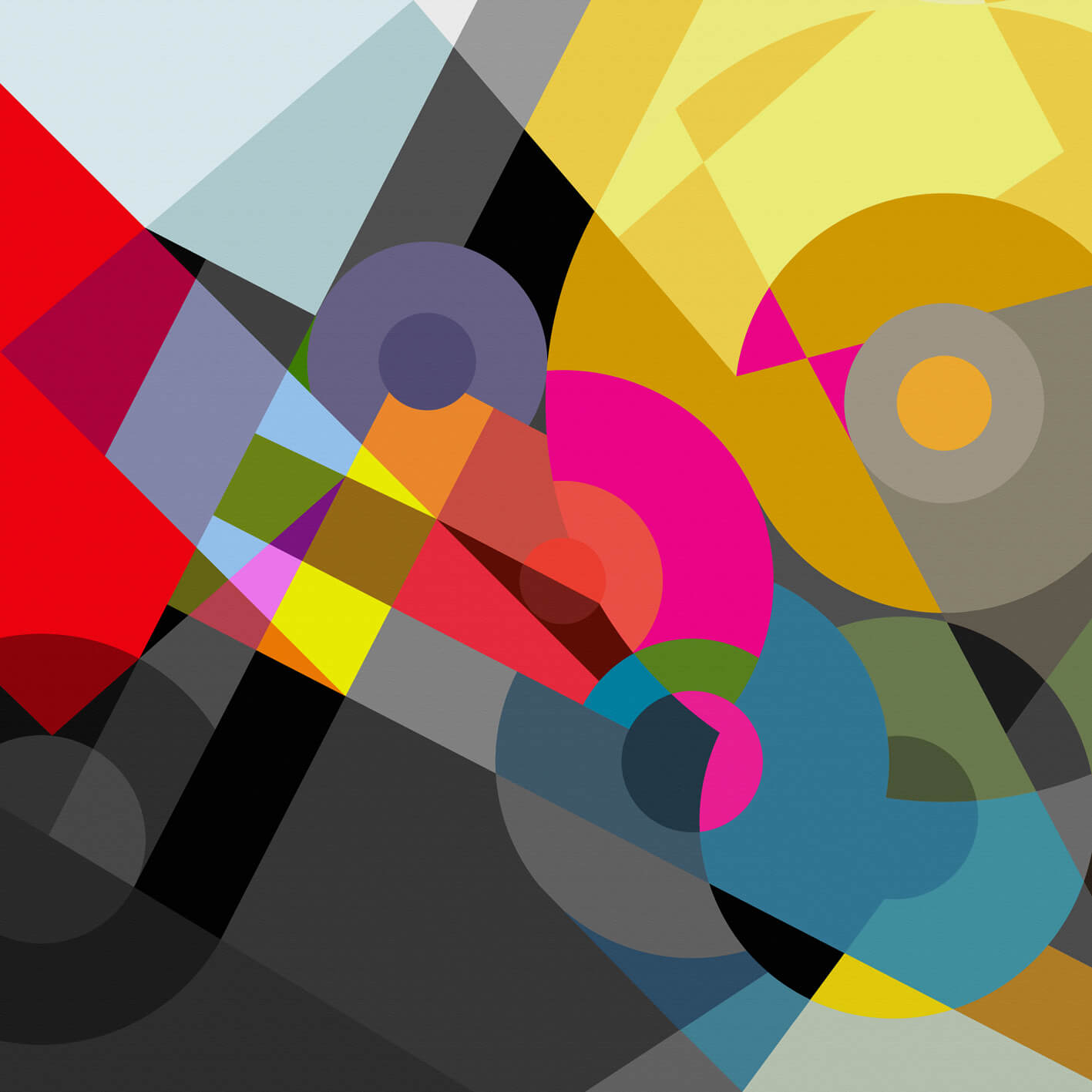
© Jasmina Krajačić
Their initiative for cultural growth, titled Brick Yard, will see these artists present their work in a garden located in Lomnička 1, in a beautiful garden that truly looks like a piece of art itself. Observing art like a plant that, in order to grow, needs to be watered constantly, the collective will showcase their work on July 1 from 5-9 pm.
''The four of us have studios at the same address. It's an old house with quite unusual dimensions and a big garden hiding the view from bypassers. That garden looks like it fell from mars, and it doesn't fit in with the series of new buildings recently built in the neighbourhood, and not a lot of people know about it,'' explained Krajačić, stating that this is the true charm of this project.
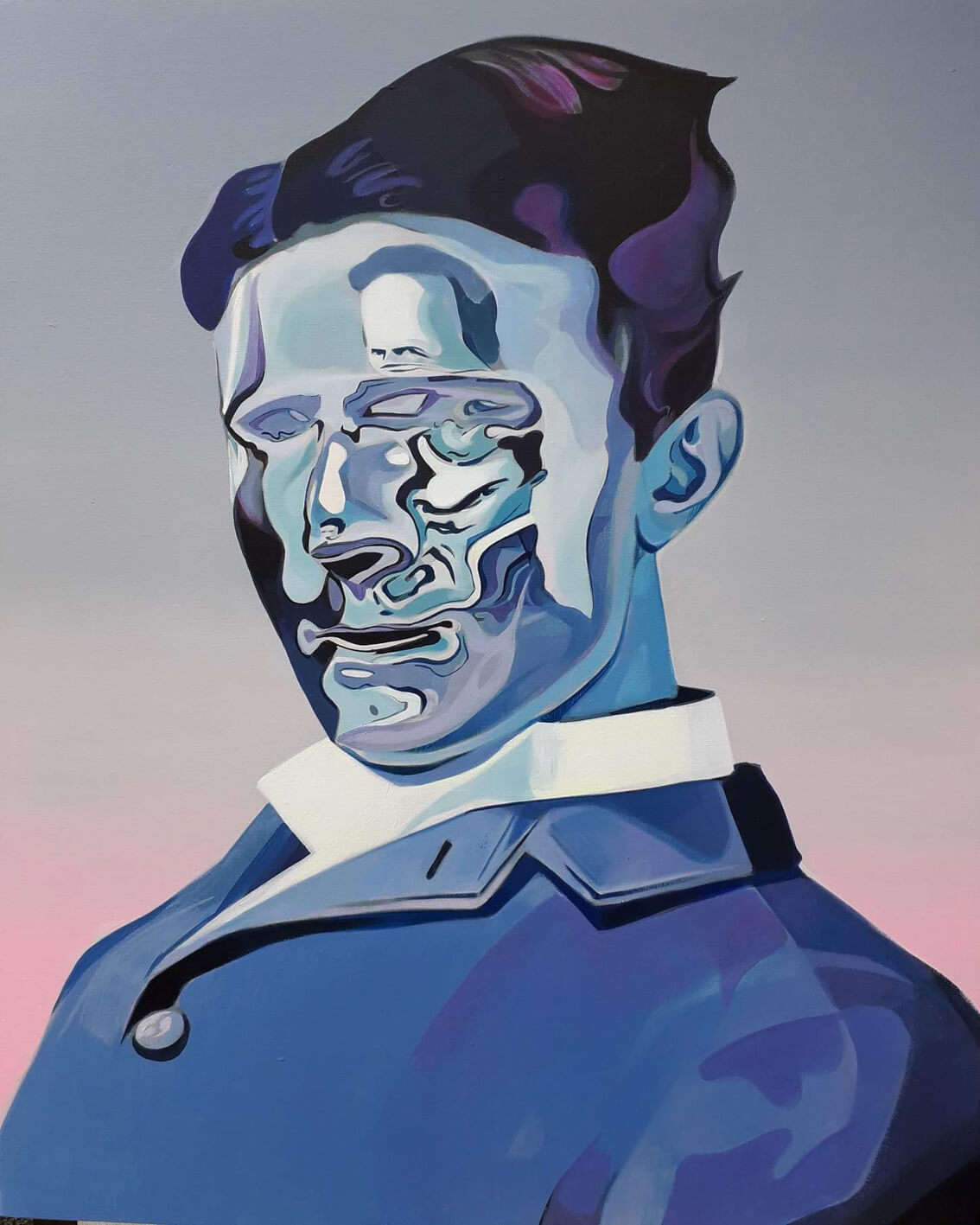
© Mario Romoda
All four artists are renowned names in the world of Croatian contemporary art, and it's interesting to observe different takes on the artistic expressions they have. Romoda is into painting, Krajačić's main focus is geometry and design, Lučić navigates toward drawing and illustrations while Unković is skilled in street art. Echo, reflection, self-therapy, comic strips, and geometry are some of the aspects artists pointed out Brick Yard will feature.
''Since the start of the lockdown, we hung out and worked in that space, killing some time in uncertainty, waiting for the outcome of this whole situation, while also creating new work with our creativity and discipline, which we decided to present in the garden,'' continued Krajačić.
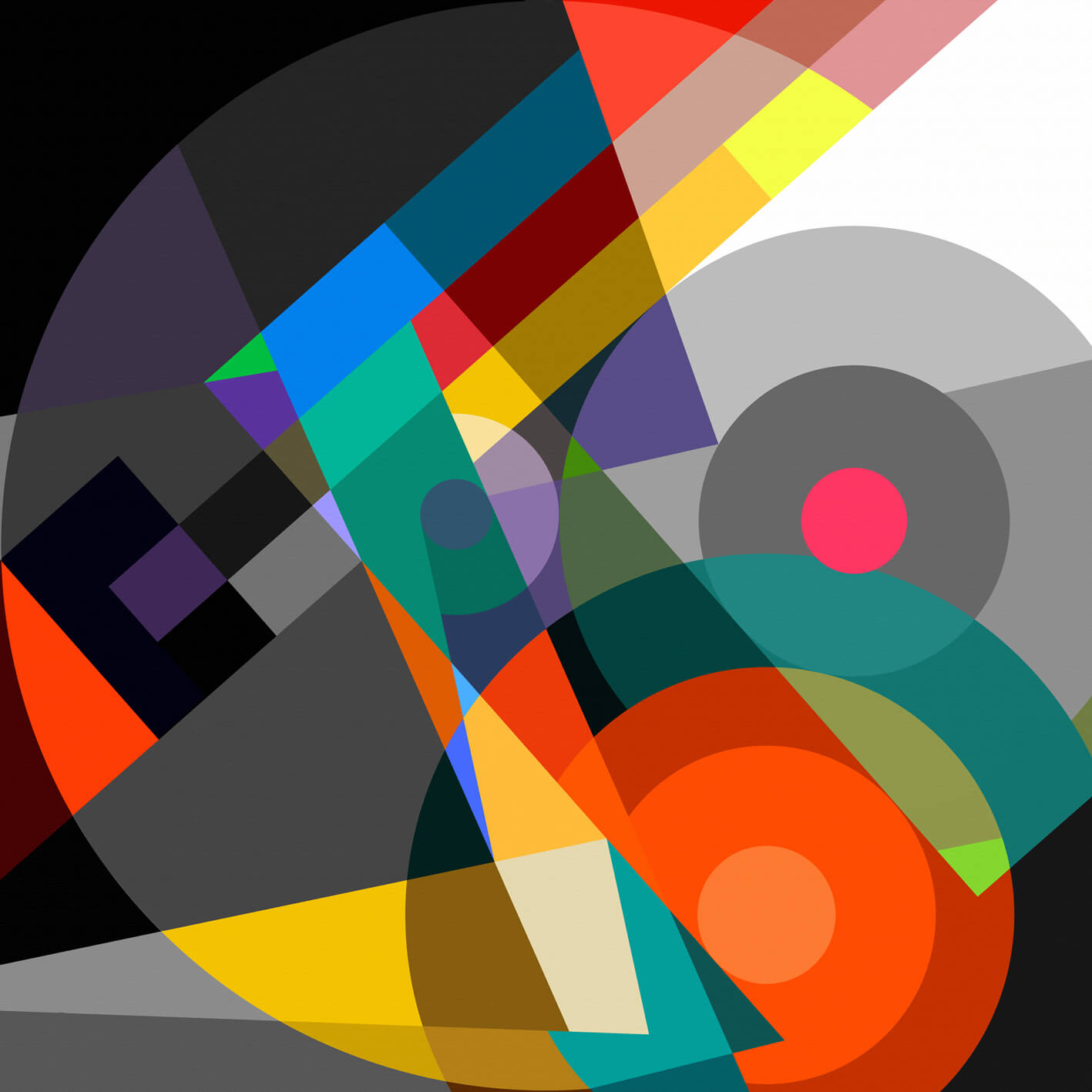
© Jasmina Krajačić
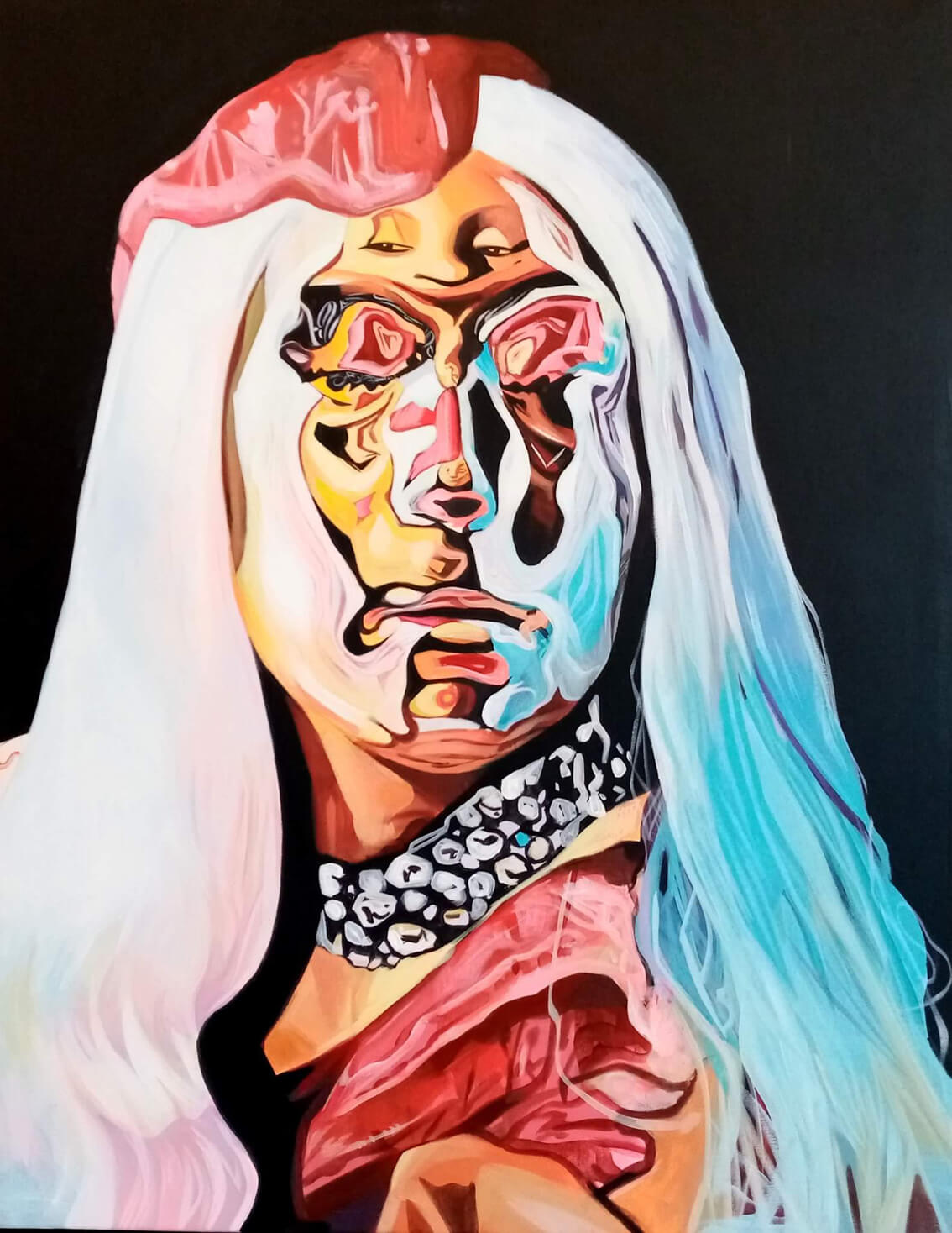
© Mario Romoda
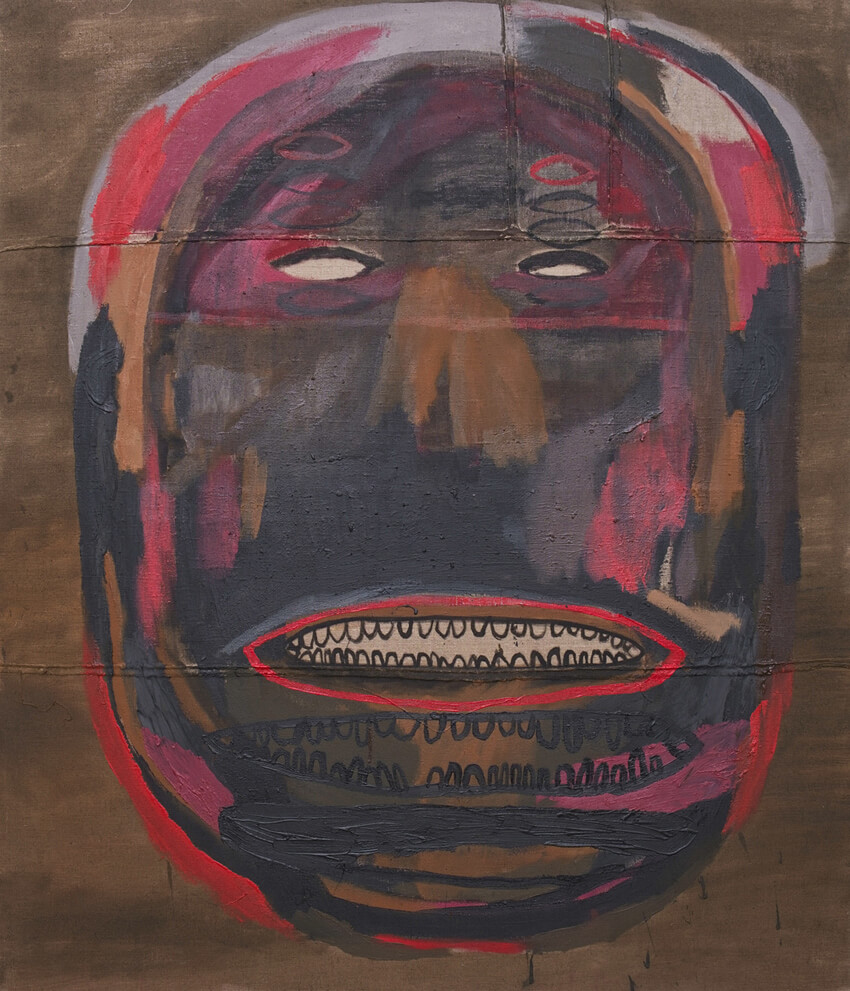
© Zorana Unković
The event, which lay somewhere between an exhibition and a party, saw the artists invite business associates, gallery workers, art critics, and several friends in the hope of ensuring the support the Croatian art scene desperately needs.
''We invited them for an afternoon in an unconventional environment, without big talks and classic gallery protocols,'' pointed out Krajačić, concluding that this type of event is not typical at all on the Croatian art scene. This unusual, experimental event is just as art should be, and the message that the Brick Yard collective differs in expression and stands united in their message is loud and clear.
''Art cannot be stopped as it feeds every atom which thirsty for creative progress. Without it, we're fragile and empty,'' they concluded from Brick Yard.
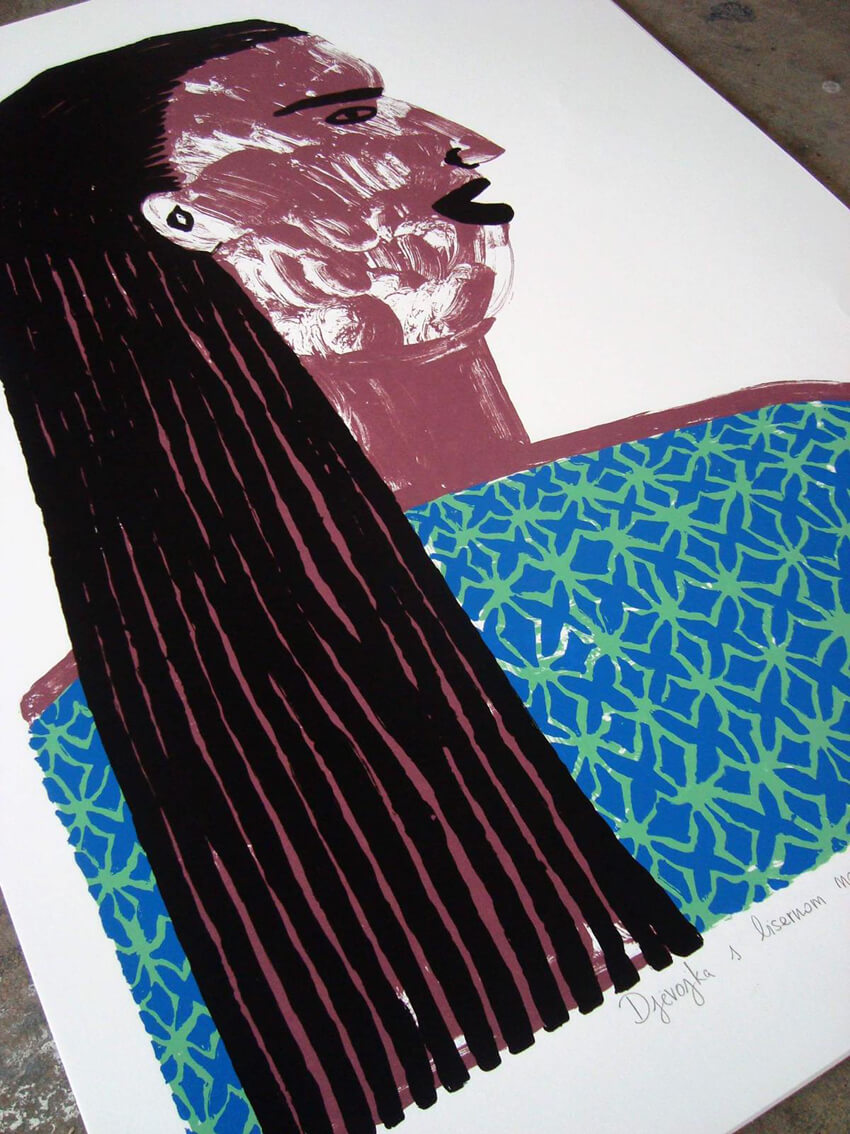
© Apolonija Lučić
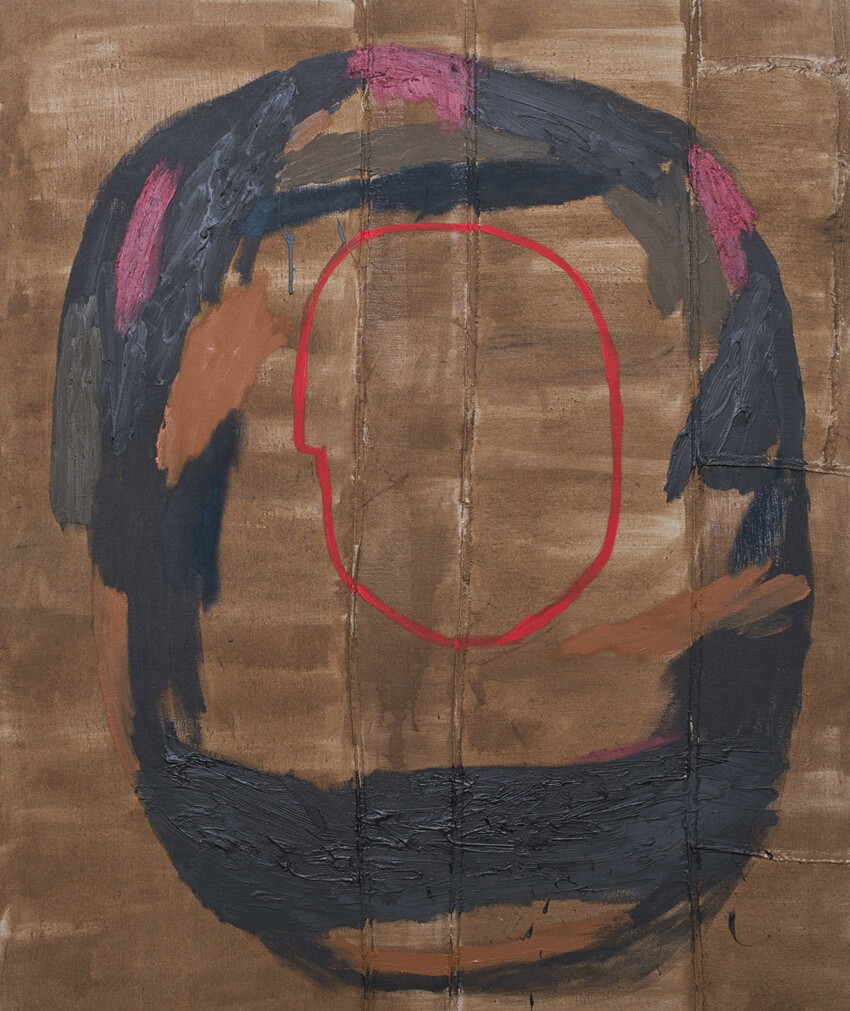
© Zorana Unković
Learn more about Croatian Art Galleries in Zagreb, Dalmatia, Istria & Slavonia on our TC page.
For more about art in Croatia, follow TCN's dedicated page
Professor Slavko Krajcar Death: A Look at the Life of Fantastic FER Professor
June 24, 2021 - Following the professor Slavko Krajcar Death on June 18, take a look at the life of an established educator and scientist whose expertise made a significant contribution to Croatian politics in the energy sector.
„The influence of a teacher can never be erased“, or as an American historian Henry Brook Adams put it, „Teachers affect eternity; no one can tell where their influence stops“- these two are just some of the inspirational quotes about teachers you can find with a little assistance from Google.
Students at the Faculty of Electrical Engineering and Computing (FER) at the University of Zagreb are recognized in Croatia for their innovations. At the end of the day, they owe their excellence to the professors that educated them.
One of such professors was Dr. Slavko Krajcar that sadly, as FER official website reported, passed away on June 18, last week.
"Professor, Dr. Slavko Kranjcar made a significant contribution to the Faculty of Electrical Engineering and Computing as he was a dean of the Faculty from 1998-2002, after which he was the head of the department for high voltage and energetics from 2002-2006. He will remain in permanent memory as a respected scientist, expert, and a colleague“, said FER in an official release.
Kranjcar was also the member and the president of the Managing council at Ruđer Bošković Institute (IRB) that also expressed its condolences.
Born on January 14, 1951, Slavko Krajcar enrolled to study in FER in 1969, followed by graduating from Technical High School in Pula. He majored in FER in 1980 and got his Ph.D. in 1988. His scientific and lecture career started in 1974 when he was an assistant on a manufacturing electric energy course. From there on, he mentored various students on different levels, ten of which earned Ph.D. statuses under his guidance.
Kranjcar was active in the media, giving interviews and writing op-pieces on education issues, specifically the education of engineers in the 21st century.
„Krajcar participated on many domestic projects regarding science or economy as well on international scientific and professional projects. Counting just after the year 2000, he participated in over fifty projects, 36 of which he led. He was one of the leading figures in making Croatian Energetic Strategy (which the parliament accepted in 2010) and the Energetic Efficiency Strategy (2008) as well as executive plans on new strategies (2008-2020)“, recalled FER.
They added Fer rewarded Krajcar in 2002 when he received Josip Lončar's golden plaque for his dedicated scientific and educational work. He also received special recognition for developing SRCE- The Computer Centre of the University of Zagreb in 2011, followed by the Ho CIRED award for contribution in developing the field of electro distribution in Croatia. He also received HRO CIGRE recognition in 2018 for the overall contribution to the electro energetic activities in the Republic of Croatia and the Nikola Tesla Award in 2020 for the contribution to science, education, and profession in the field of electrical engineering and computer sciences and application of those technologies.
Believe it or not, Krajcar even made time to contribute to art and culture as well. He published two books of poetry, edited four books regarding cultural issues, and was the president of the Association for Čakavski dialect (distinct for the use of Ča as a word for what and conversated on coastal Croatia).
Learn more about Croatian inventions & discoveries: from Tesla to Rimac on our TC page.
For more about science in Croatia, follow TCN's dedicated page.
Cultural Identity of Vukovar: New Book Presented in Vukovar
June 9, 2021 - The fascinating question of the Cultural Identity of Vukovar is researched in a new book edited by Dr. Mateo Žanić and Petar Elez. However, as the editors stressed in the introduction, further research is needed to encompass all social groups in Vukovar and their contribution to the heritage of Vukovar.
After being published back in April this year, the book „Cultural Identity of Vukovar – Contribution to Investigating Heritage and Successors“, was presented this Wednesday in Vukovar. As Ivo Pilar Social Research Institute writes on its website the book was published in cooperation with the Vukovar State Archive, so it was only suitable that the first book presentation was held in Vukovar at the videoconference hall of College Of Applied Sciences „Lavoslav Ružička“ (named after a famous Croatian chemist whose work is awarded a Nobel Prize). In addition, the event marked International Archive Day.
The book was edited by Dr. Mateo Žanić and Petar Elez, and the presentation, alongside editors, saw scientific experts Dr. Dražen Živić, Mirela Hutinec, and Dr. Domagoj Tomas talks about the book.
„Fast events triggered by globalization process and information revolution which paradoxically lead to today's societies being fiercely occupied with the meaning of past, and preserving its valuable traces. In that context, there is a spreading interest for heritage that holds an important component to understand the relationship between the past and present“, says the editorial introduction of the book.
The editors went on to explain how „the city proved to be futile to interpret the meaning of heritage and its contribution to cultural identity,“ and the editors wanted to present various aspects of Vukovar's cultural heritage.
Apart from editors Žanić (who wrote a chapter „Layers of memories and material heritage in modern-day Vukovar) and Elez (author of the chapter „State archive in Vukovar and development of archive service in Vukovar-Srijem County“), the book features eight more authors. Ivan Rogić (Whose Heritage? Who is the successor?), Dražen Živić (on Vukovar's feudalists), Vlasta Novinc („Danube, food, Corso“), Dragana Drašković (on the cultural life of Borovo Selo), and more by Dragan Damjanović, Toni Roca, Ivana Bendra and Ivan Hubalek.
With these broad presentations of culture and heritage in Vukovar, editors hope this book will encourage further research as they are aware this is certainly not the final word on these interesting questions and issues.
„As editors, we are aware that the book does not deal with topics that concern different social groups that left their trace in Vukovar end enrich the history of the city. We hope that future editions that will deal with this topic expand the reach of issues and help us to realize better what do we inherit from the past and why is that important“, concludes the introduction of the book.
So far, the book is available only in Croatian, and research that will, as editors say, deal with other social groups in Vukovar is yet to come. Keeping in mind the terrible aftermaths of the war in Vukovar in the 90s and inter-ethnic tensions, further findings on joint cultural contribution to Vukovar may indeed be the enlightenment needed for peaceful cohabitation and development of Vukovar as a perspective city in Croatia.
Speaking of heritage, learn more about UNESCO recognized heritage in Croatia on our TC page.
For more about science in Croatia, follow TCN's dedicated page.
Photo Exhibition For Croatian Army's 30th Anniversary
ZAGREB, 26 May, 2021 - On the occasion of the 30th anniversary of the establishment of the Croatian Army and Croatian Ground Army Day, the Dr Franjo Tuđman Military Academy organised a photo exhibition, with each photo representing one year of the army's existence.
The exhibition may be seen from today until 3 June and from noon to 8 pm every day at the Zagreb Student Centre's French Pavillion, the Defence Ministry said in a press release.
The exhibition will also be shown at the Zagreb National and University Library until 31 May from 8 am to 9 pm on weekdays and from 9 am to 2 pm on Saturday.
For more about politics in Croatia, follow TCN's dedicated page
Panel and Book on Contribution of Jews to Croatian Culture
ZAGREB, 23 May, 2021 - Writer Jasminka Domaš gave a lecture in Zagreb earlier this week on the contribution of Jews to Croatian culture and their lasting legacy, and presented her book "Kadišl i Nebeski Zločini" (Kadišl and Heavenly Crimes), inspired by the fates of Croatian Jews during the 1941-45 Nazi-styled NDH.
A panel entitled "The Contribution of Jews to Croatian Culture", organised by the Centre for Promotion of Tolerance and Preservation of Holocaust Remembrance, is part of a cultural and educational project, "I Understand You, I Hear You", which focuses on learning about the Holocaust, the social significance of Jews and other national minorities and their contribution to the cultural and other legacies in Croatia.
Domaš is a Croatian writer, journalist and scientist of Jewish origin.
Jews are an inseparable part of identity of today's Zagreb and Croatia
Speaking about the contribution of Jews to Croatian culture, Domaš named a number of important and successful individuals, such as doctors Mauro Sachs, Dragutin Schwarz and Izidor Steinhardt and social anthropologist Vera Stein Erlich, who contributed greatly to the development of Croatian society.
Also, it is impossible to talk about the City of Zagreb and its urban appearance without mentioning Jewish architects responsible for the look of its centre today, she said.
She recalled that the Zrinjevac meteorological column was a gift to the city from Jewish doctor Adolf Holzer. The Prister family donated the Music Pavillion to the city, while the Ethnographic Museum was founded by Salamon Berger.
The Vatroslav Lisinski Concert Hall was named after Ignac Fuchs, the composer of the first Croatian opera, Domaš said, recalling also the fate of Lea Deutch, who performed at the Croatian National Theatre in Zagreb from the age of five and who in the NDH (Independent State of Croatia) was not spared death in a Nazi camp.
"About 1,500 Jews live in Zagreb today, and there are 2,000 in Croatia. According to data, in 1941, about 12,000 Jews lived in Zagreb and 39,500 in NDH, so some 5,000 people survived the war," said Domaš, who came across some startling information during her research. "After 1938, 50,000 refugees from Germany and Austria passed through Zagreb, but no one believed what they said about what was happening there, and it cost so many people their lives".
For more on lifestyle in Croatia, follow TCN's dedicated page.
For more news about Croatia, CLICK HERE.
"Croatia to The World" Exhibition Could Be Shown in Diplomatic Offices
ZAGREB, 14 May, 2021 - The fantastic exhibition "Croatia to the world" represents the best that Croatia has contributed to the world and it would be good if it were shown in diplomatic offices abroad to help to break down stereotypes, Foreign Minister Gordan Grlić Radman said on Friday.
He was accompanying diplomats accredited in Croatia who were visiting the exhibition at the Meštrović Pavilion. The exhibition honour 38 greats linked to Croatia whose work left a deep trace on humankind. Apostolic Nuncio Giorgio Lingua, doyen of the diplomatic corps, thanked the minister on their behalf.
"In order for the exhibition to be visible, it would be good if it were shown, for example, in Budapest, Berlin, Rome," Grlić Radman told the press.
That would help to break down the stereotypes about Croatia, which is often seen as a country of athletes, footballers, the most beautiful sea, nature and such, he said.
Today's visit was an opportunity for diplomats to get to know the many things they use every day without knowing who contributed to their creation, said Archbishop Lingua. "This is a good opportunity to see how much Croats have contributed to many fields in the world."
"The exhibition is an introduction to the unimaginable wealth of the Croatian cultural heritage," said Grlić Radman. It is dedicated to "extraordinary minds" linked to Croatia by birth, education or activity, he added.
The exhibition is dedicated to individuals whose work influenced global processes, changed the world or influenced global history, the minister said, such as inventor Nikola Tesla, presented as the man "who discovered the 20th century," or Nobel winners Lavoslav Ružička and Vladimir Prelog, or "the father of forensics" Ivan Vučetić.
Archbishop Lingua said he was pleased that today's visit was an opportunity "to see the world through Croatian eyes."
For more about diplomacy in Croatia, follow TCN's dedicated page.
Croaticum Croatian Language and Culture Summer School Announced for 2021
May 13, 2021 - Croaticum has announced this year's Croatian Language and Culture Summer School in the city of Zagreb, and enrollments will begin on May 24th!
The Croatian language and culture are beginning to generate more and more interest among not only ex-pats who wish to return home or reconnect with their relatives, but also among tourists and foreigners. In recent years, an increasing number of people have enrolled to study the Croatian language and culture in different cities of the country. One of these departments, the Croaticum in Zagreb, has announced the opening of its summer school for the Croatian language and culture, to be held between June and July.
Despite being a real challenge, those interested this year in learning the Croatian language and culture course are encouraged to take it online, in order to achieve an approach to the rich Croatian culture from almost anywhere in the world.
The Centre for Croatian as a Second and Foreign Language, also known as Croaticum, is the oldest and largest institution engaged in teaching, research, and description of Croatian as a second and foreign language. It is part of the Department of Croatian Language and Literature at the Faculty of Humanities and Social Sciences of the University of Zagreb, the largest Croatian academic institution specializing in social studies and humanities. Croaticum is renowned for its tradition, expertise, and knowledge.
One of the main attractions of studying through Croaticum is the opportunity of being part of classes that are organized in diverse groups of students speaking different languages and belonging to different nationalities and age groups. Groups are formed on the basis of the results of Croatian language placement tests.
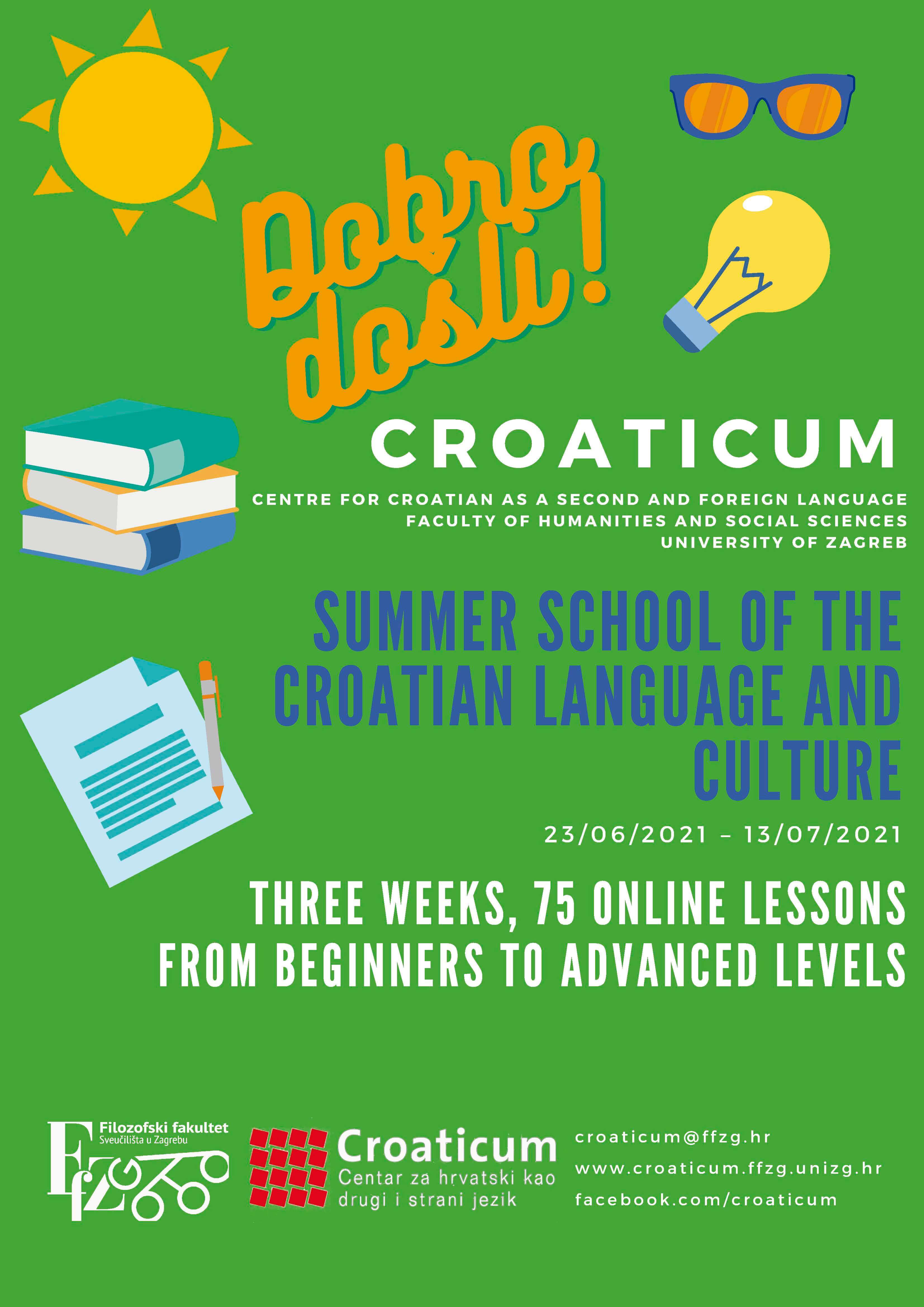
For this year, Croaticum has announced that their online Summer School of Croatian Language and Culture will take place from June 23rd to July 13th. The course consists of 75 lessons during three weeks, and they are distributed as follows:
- 60 lessons of language exercises,
- 6 lessons of phonetic exercises,
- and 9 lessons on cultural lectures and activities.
Lessons will be taught in the afternoon hours, starting from 2:00 pm Zagreb time (UTC +2, CEST).
The price of the course is 450 euros and enrollments are open from the 24th of May until the 18th of June. For online participation in the Croaticum Summer School of the Croatian Language and Culture a computer with a stable internet connection, microphone and camera is needed.
For more information on the Croaticum Summer School of Croatian Language and Culture, please check out their website.
If you are interested in the program, contact Croaticum for more details or you can fill out the online application form and you will receive an e-mail with more information when enrollments open.
You can also contact the Croaticum through phone (+385 1 4092 068), by email (This email address is being protected from spambots. You need JavaScript enabled to view it.), or through their official Facebook page.
For more, follow our lifestyle section.
Identity of Boka Kotorska Croatians - Scientific Conference by Ivo Pilar Social Research Institute
May 12, 2021 - Earlier in May, Boka Kotorska, in the town of Tivat in Montenegro, was the host of the scientific conference "Identity of Boka Kotorska Croatians" which will introduce changes in Croatian education.
Croatia has a big diaspora, no secrets there, but its worldwide spread makes you miss the region.
In Boka Kotorska, in Montenegro, Croatia's first neighbor on the southern border after Dubrovnik, not only is there a huge population of Croatians, but they also have a significant cultural impact on the area. So significant it even calls for social science to step in.
As Ivo Pilar Social Research Institute reported on its website, May 6 to 9 saw the conference “Identity of Boka Kotorska Croatians“. The three-day conference gathered crucial scientific institutes in Croatia to the town of Tivat in the Bay of Croatian Saints. Headed with Ivo Pilar Social Research Institute, Croatian Catholic University, Croatian Studies Faculty, Institute of Croatian Language and Linguistics as well as Institute for Historical Sciences in Zadar attended the conference while Croatian ministries of European, and Foreign Affairs, Science and Education, Culture, and Media, as well as Croatian Central State Office for Croatians Outside of the Republic of Croatia, founded the event.
„The scientific conference went well as well as signing conclusions with recommendations that that knowledge on Bokelj Croatians we learned on this conference enter the Croatian national curriculum in important subjects. These conclusions are the crown of our efforts to launch this conference in public, not just in an academical way, but to massively popularize to ensure long-term benefits for Bokelj Croatians as for every educated citizen of Croatia and Montenegro“, said Dr. Željko Holjevac, head of the Ivo Pilar Social Research Institute.
Conference conclusions suggest additions to the curriculum documents on key definitions of Croatian National Identity to make space for Croatians outside Croatia, including Boka Kotorska Croatians. Identity features and creativity of Bokelj Croatians in Croatian education, and the book „Boka Kotorska - the Bay of the Saints and Croatian Culture“, by Vanda Babić to be the mandatory literature for tourist guides in Montenegro.
Final meetings at the conference, as well as sailing with a „Katica“ ship through Boka Kotorska Bay, Saw the participation of Boris Bastijančić, the advisor and representative of the Montenegro president and representer of Croatian parliament and MP, Zdravka Bušić, and others.
„I'm glad to be at this scientific conference, and I want to thank everyone's effort for something like this to happen in Boka Kotorska. I would especially like to thank students that took part in this and gave their part as young people who love the truth of Boka, the place of saints. This is a message that we too need to do something to mark this time with love, hope, and faith“, said the Kotorska bishop, mons. Ivan Štironja.
Some Croatians live outside of Croatia, but maybe you would want to live in Croatia. Learn more about living in Croatia on our TC page.
For more about the Croatian Diaspora, follow TCN's dedicated page.


